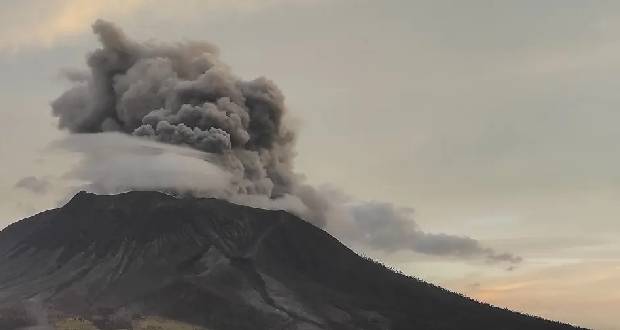Publicité
Mrinal Teelock: “The damage caused to the vehicles by the manganese in the fuel is irreversible”
Par
Partager cet article
Mrinal Teelock: “The damage caused to the vehicles by the manganese in the fuel is irreversible”


With the Motor Vehicles Dealers’ Association drawing the country’s attention to cars being damaged due to the poor quality of petrol, Weekly speaks to its administrative secretary, Mrinal Teelock, to find out what’s going on. He discusses the stance of the minister of commerce and consumer protection and the reaction of the State Trading Corporation to the matter and the possible remedy available to affected car owners.
Your association has been very vocal recently about the quality of petrol going into our cars. How were you alerted to the problem?
We were flooded with a number of vehicles that had broken down. Hundreds of cars in a short time. We used to get the odd car of a driver who had absentmindedly used diesel instead of petrol or something careless of that nature. This time, the flow of cars coming in for repairs was endless. So, we had our suspicions, which were later confirmed.
How were they confirmed?
When we started receiving damaged vehicles, we consulted other car dealers to see if they were receiving cars with similar symptoms: reddish deposits on spark plugs and engines with a red deposit on them. We immediately found out that the same symptoms were present and the same diagnosis was being made everywhere. When we compared notes and, because of the type of breakdowns, we suspected that it was probably being caused by manganese in the fuel.
Did you then have any tests carried out?
Yes, we sent samples of fuel to the Societé Générale de Surveillance (SGS), an international forum that carries out all sorts of checks and analyses. The SGS sent the samples to France and South Africa. The results that came back 10 days later confirmed the presence of an excessive concentration of manganese in the fuel.
How excessive (considering that the maximum amount of manganese permissible in any country is between 1 and 2 milligrams)?
Yes, that is the maximum. In fact, the specification in the contracts we had with Mangalore said that “no intentional addition of manganese shall be permitted.” These specifications were public and were communicated to the Motor Vehicles Dealers’ Association (MVDA) so that we could import cars according to the specifications of Mauritius. The samples tested showed a manganese concentration of between 24 and 129 milligrams!
Does that mean that the specifications of the State Trading Corporation (STC) have changed?
We are not aware of the specifications now. Unlike other public tenders where the documents were public and published on the STC website, under the emergency procurement tenders, everything is top secret. Now, we are completely in the dark. On the certificate of quality, no percentage of manganese is mentioned nor is there any specification as to its absence as it used to be done previously. All the certificate mentions is that the “results meet contractual specifications.” What these specifications are, nobody knows.
The minister of commerce and consumer protection, Yogida Sawmynaden, says that the claim that there is an abnormally high concentration of manganese in the fuel is not true. How do you react to that?
The minister has to specify when the test he carried out took place. Maybe the fuel is manganese-free again now. It certainly wasn’t in November and December when hundreds of cars were breaking down on a daily basis.
Is everything back to normal as far as cars are concerned?
We are no longer dealing with the same problem or the same intensity as last year but the consequences of the manganese on vehicles is still there. The damage caused to the vehicles by the manganese is irreversible. Every day, we are getting vehicles showing the same symptoms. Every car will show these symptoms. Some will come sooner rather than later.
The STC issued a communiqué saying that the damage caused to cars was due to octane boosters. Isn’t that a possibility?
That is not credible. First, the manufacturers of octane boosters issued a certificate saying that there is no manganese in them.
Did you expect the manufacturers to condemn their own products?
No, but these boosters have been on the market for a number of years. How come we didn’t have this problem before November last year? The suggestion that everyone suddenly woke up and started buying boosters for all cars of different brands is not reasonable. We can’t assume that every car whose engine was wrecked – including government vehicles – has had an octane booster placed in it. This is not a statement based on facts. What serious research, test or enquiry was carried out before the communiqué was issued?
Why is the STC trying to dodge responsibility then?
Because the liability is very high. The repairs done on the cars are very costly. In some cases, the whole engine had to be replaced. Do the math. You do realise that, once the STC admits that there is a problem, we are talking about hundreds of millions in compensation. There are already lawsuits being prepared against the petrol companies, because the contract is with them. To our knowledge, there are at least two law firms dealing with this. Now, these things take time, so I estimate that, in two or three weeks’ time, we should see such cases being lodged.
Do the filling stations have any responsibility at all?
They have some responsibility as they sold the fuel to the consumers.
Have they admitted any problem?
For some reason, they have not. I don’t know where they stand in the chain between the STC and the petrol companies. None of these distributors have made us aware of what their actions might be.
Shouldn’t you have liaised with them and prepared something serious, as opposed to giving a single press conference?
According to our legal people, we have no standing in this matter. We did not sell the petrol, we did not buy the petrol. We can just highlight the findings of how the petrol is damaging cars and engines. Our responsibility stops here. We cannot go any further. So, what we are doing at the moment is sensitising the people, and helping these people to get their cars some preventive action.
Is this the first time we have had such problems with fuel?
It is the first time and it’s quite a shock to us car dealers. We never had anything like this.
Do you mean that Mangalore respected all the norms?
You know, India has banned manganese since 2005, as have many countries like Pakistan. The US limited it to 8mg. Here, we are talking about 129mg! That’s a lot. So, obviously, the fuel was contaminated in November and December. No one can deny that.
Except the minister and the STC.
I don’t know whether he is denying it, or just not responding.
Same difference, isn’t it?
His appreciation of the situation might be dictated by other concerns of which we are not aware. The STC is his ‘baby’ and it has to come up with a factual explanation. Factual like a public document of specifications of fuel online, correspondence about the specs, and whether in that specification it said “no manganese” or “there is manganese, are you OK with that? That’s the crux of the matter.
What has the STC told you?
Nothing so far and, after the press conference, we would be naive to expect them to come to us.
The minister has not answered the question, the STC has ignored you. What is your next step?
As car dealers, our next step is to get as many people as possible to get their cars checked and repaired. Our duty is to see our customers looked after. If our customers want to sue over this, they are free to do so and, if they seek our assistance, we will give it to them.
Are you surprised by the reaction of vehicle owners? In France, the Gilets Jaunes would have been on the streets, wouldn’t they?
Yes, most probably. Having said that, many Mauritians did not realise the cause of the problem. Now that they do, many are taking legal action and whoever is responsible will have to pay. It is a stronger form of protest. Not a protest on the streets, but one in court.
Isn’t manganese dangerous for people as well?
Yes, manganese is as dangerous for people as it is for cars. When you inhale it in vapour form, it goes to the brain and can cause neurological diseases like Parkinson’s. The STC knows about the harmful effects of manganese on vehicles, humans as well as animals. If they did not, they would not have stated in their tenders since 2002 that there should be absolutely no manganese in the fuel they import. I don’t know whether they changed their mind or someone ill-advised them. We need to know what happened in the emergency procurement. It is crucial for our understanding of the situation. There is someone responsible and that someone should be answerable.
For more views and in-depth analysis of current issues, Weekly magazine (Price: Rs 25) or subscribe to Weekly for Rs110 a month. (Free delivery to your doorstep). Email us on: weekly@lexpress.mu
Publicité
Les plus récents






